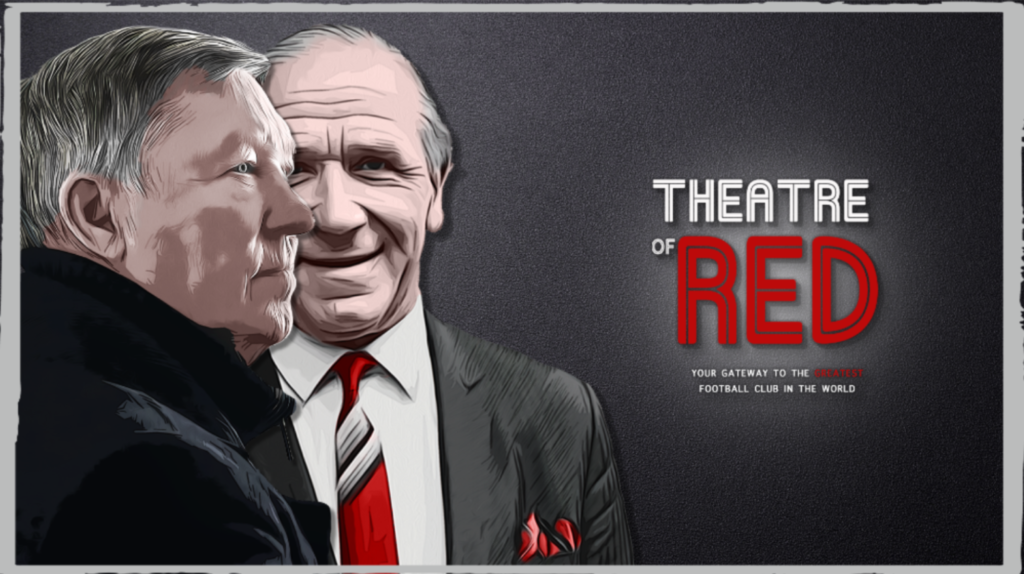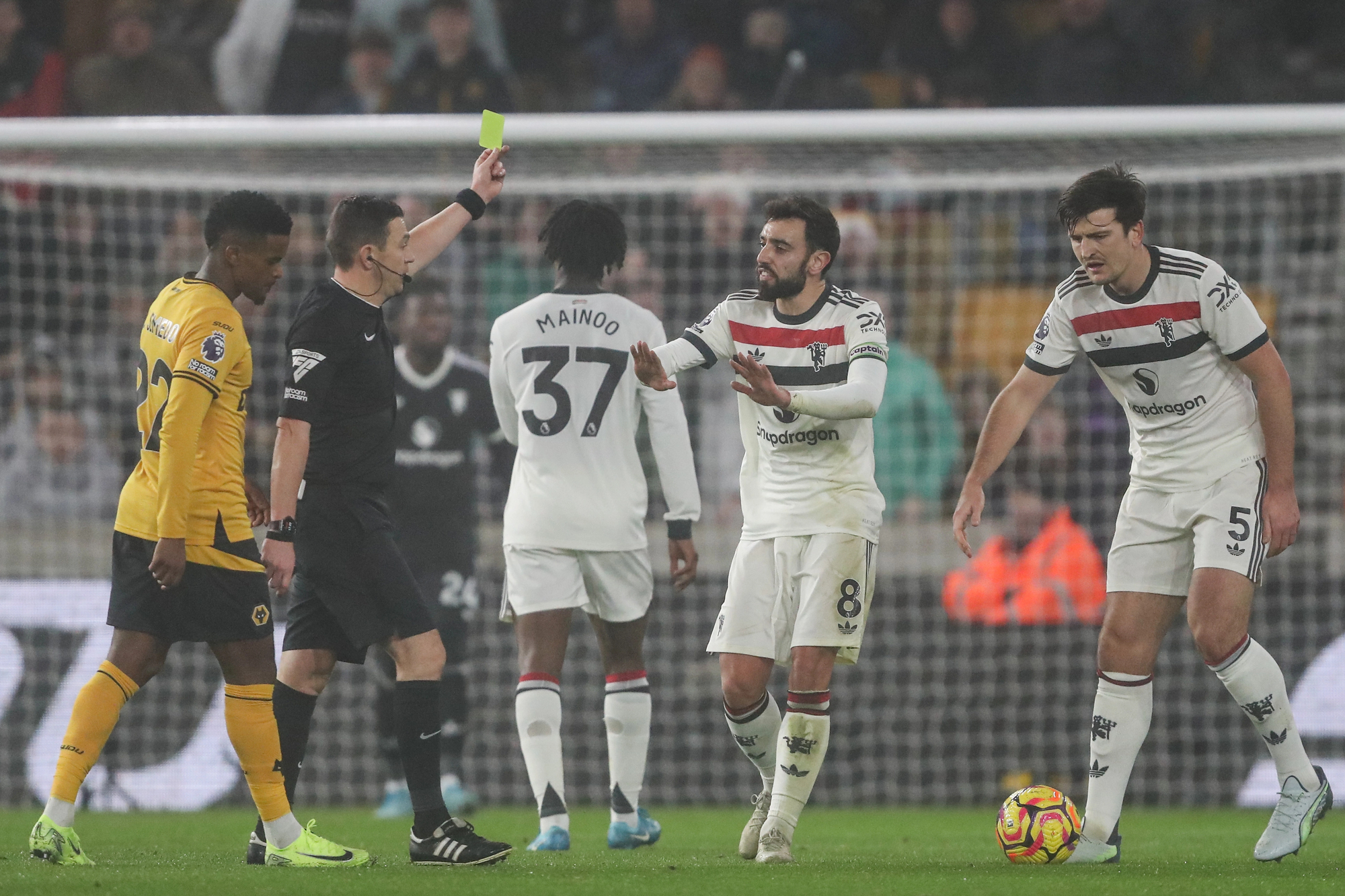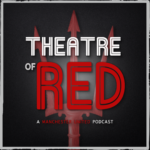Regardless of your location on the earth and your football affiliation, the chances are you have heard about Manchester United and possess a particular perception of the former Premier League giants.
Without the intention of coming across as disrespectful or naive, I’m pretty confident the same statement could not be shared for Wolverhampton Wanderers or Bournemouth.
However, in reality, while both sides are significantly below the global catchment of the Old Trafford outfit, each has comprehensively dealt a formidable blow to Ruben Amorim in recent weeks.
From the outside, football supporters question a mishmash of overpaid players delivering a comical output for the world’s most beloved sporting institution.
In theory, they are not incorrect. But the concept requires more understanding.
As we know, a host of continental tacticians have entered the cauldron of the Theatre of Dreams with aspirations of cultivating their image and returning the side to the glory days of Sir Alex Ferguson.
Alongside them, various individuals make their ‘dream move’ to the North West for massively inflated transfer fees and, within weeks, are deemed incapable of delivering the required output.
This jaded process has become a biennial cycle and has stood to supply much amusement for the hoards who thrive on the downfall of the 20-time English champions.
A logical individual can take a step back and assess the catastrophe caused by nearly two decades of the Glazer family mismanagement, and that is without even factoring in the arrival of Sir Jim Ratcliffe.
That said, logic is regularly disregarded in football in place of a fickle solution which opts to ignore reality. Therein lies the fundamental flaw which refuses to acknowledge a necessity for acceptance.
Amorim and his Manchester United vision require time, patience, allowance for unsatisfactory results and understanding. But, because of a requirement to pound this sleeping giant daily, that will never be the case.
But is it simply enough to fire money at the problem and expect a satisfactory solution?
The pressures associated with playing for the Reds can only be compared to those of Real Madrid, Barcelona and Bayern Munich. These are the quintessential giants who compete for top domestic and European honours on a perennial basis.
Under Sir Alex, United was the English answer to these continental beasts and routinely locked horns for the top accolades.
While any of the four sides could encounter a hiccup, their inevitable return was a season away, and anything but was deemed an unexplainable crisis.
This ideal remains the case for the Spanish rivals and their German counterpart, but their domestic scenario has not evolved like the Premier League enigma.
At the time of writing, Southampton, Valladolid and VfL Bochum all occupy the bottom positions in their domestic league tables. Their spending power provides undeniable insight into the attraction that makes England’s top tier the most desired landing spot for the game’s top talents.
| League Position | Total Payroll | League Average | |
| Southampton | 20 | £56,030,000 | £94,954,200 |
| VfL Bochum | 18 | £17,416,981 | £44,616,304 |
| Valladolid | 20 | £15,191,436 | £47,655,188 |
Criminally, Amorim’s squad commands a staggering £185,580,000 gross salary annually.
If we were to utilise that as the primary guide for expected success, the Reds rank second to their Manchester rivals. But herein lies the fundamental ramifications of bankers making critical football decisions under the rule of an absent American ownership.
Overbidding, overpaying, and refusing to utilise a January market has returned the perennial title of ‘United tax‘ when, in reality, this is a byproduct of the club’s incompetence.
But while the historical decision-making has left an irrefutable sour taste in the mouths of the Old Trafford faithful, the present-day hierarchy has crafted a questionable summer of their own making.
The Ineos factor
Say what you will about the cost-cutting measures sanctioned by Ratcliffe or the decision to part company with Dan Ashworth, but choosing to stick with Erik ten Hag has proven the most critical factor since his arrival.
This highly-publicised decision returned a busy summer transfer window with the arrival of Leny Yoro, Manuel Ugarte, Matthijs de Ligt, Joshua Zirkzee and Noussair Mazraoui.
Inevitably, results did not improve, and Ten Hag was shown the door at the end of October.
Much like the decision to part company with Ashworth, the departures highlight the ruthless nature of the Ineos billionaire. However, it lacked logic when hiring his Portuguese replacement and adopting his contrasting playing style mid-season.
It leaves the present dynamic that returns a combination of frustrating performances and results, inconsistency with individual performances and isolation of top-earning first-team players.
Is Amorim blameless for the current form? No. But is he to blame for the square peg in a round hole situation? No!
Fergie’s success laid the framework for an abundance of disgruntled rivals and an expectation for never-ending success.
However, the continued growth of the domestic relationship between the Premier League and Sky supplied a newly promoted team with financial muscle comparable with the top-half Spanish and German sides.
It’s easy for a rival supporter to disregard the claim of Glazer mismanagement when millions of pounds are traded for underperforming players.
But if a well-oiled engine is left in the hands of an uneducated first-year apprentice, issues will most certainly follow.
The perception of what Manchester United is versus the reality could not be any different.
Amorim is a talented coach and has earned a track record of success. But the man is not a magician, and the idea that a click of his fingers will yield the required change could not be further from the truth.
Let us know what you think in the comments or across our socials.
Salary figures taken from www.capology.com
Recent Posts
- Manchester United assessing defensive options in January window
- A look back at Manchester United in 2024 | A-Z Season Review
- Theatre of Red official podcast | Episode 32 | Stanley Chow





Leave a Reply